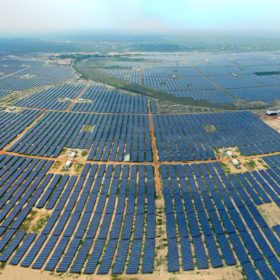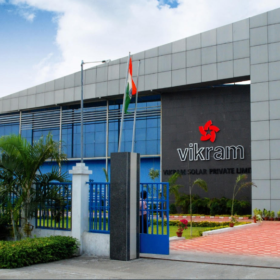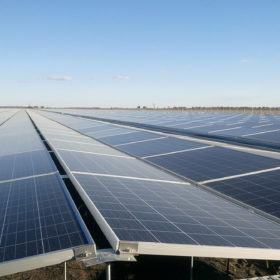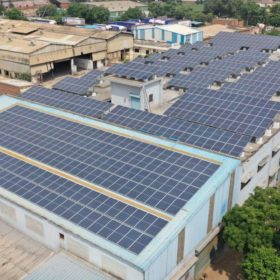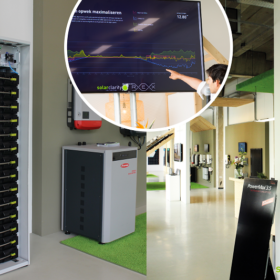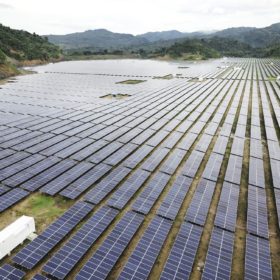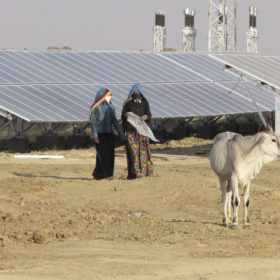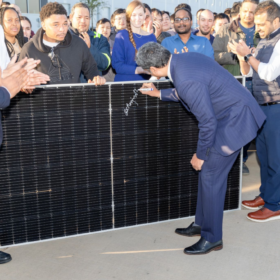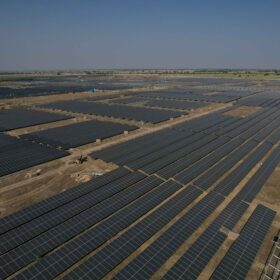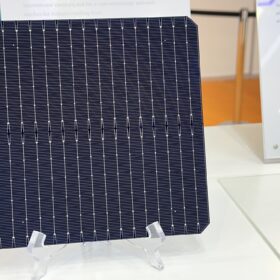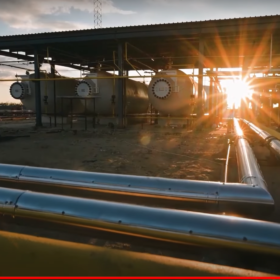Adani Green Energy arm commissions 50 MW solar plant in Rajasthan
An aggregate 2198 MW AC of solar capacity is now operational by the developer which aims to become the world’s largest solar player by 2025.
Vikram Solar bags 300 MW solar project from NTPC
The Rs 1,750-crore project—under the second phase of Central Public Sector Undertaking scheme—is to be developed using domestically manufactured solar cells and modules.
Covid-19: Solar cell manufacturer CEL to make ICU ventilators, seeks partners
Central Electronics limited—India’s first silicon PV manufacturer—is looking to utilize its expertise and technical competency to ramp up the production of ICU ventilators in the country’s fight against Covid-19 pandemic. The public sector unit has invited global bids from ventilator manufacturers to select partners for production.
Gensol wins solar EPC projects worth Rs 45.86 crore in India
The EPC provider has won an aggregate 13.2 MWp solar capacity from State-owned Central Electronics Limited, in addition to projects from Gas Authority of India Limited, Bihar Renewable Energy Development Agency, Hindustan Petroleum Corporation Limited and Reserve Bank of India.
Covid lockdown will impact rooftop solar more than grid-connected projects, says Care Ratings
The rooftop solar sector will see reduced installation activity even after lifting of the lockdown as consumers continue to deal with financial constraints. Small-size developers may also lack the financial strength to meet additional working requirements.
IREDA replaces SECI for 12 GW CPSU solar scheme
The financial lender will now oversee the implementation of the second phase of the Central Public Sector Undertaking (CPSU) Scheme which provides viability gap funding (VGF) support for state-run generators to set up 12 GW of solar projects using domestically-made equipment by FY 2022-23.
Global solar EPC market dominated by US, German, Indian contractors
Although the Wiki-Solar website ranking only provides a snapshot of PV project engineering, procurement and construction contracts outside of China, it is nevertheless a useful indicator of the changing global solar market landscape. Of the top 11 companies, four are based in India, three in Germany, and two in the United States. But last year’s largest contractor, U.S.-based First Solar, might lose its leading position this year, as it has largely discontinued its EPC activities.
Covid-19: Challenging times underscore the importance of energy planning and data management
Given the close links between energy and economy, an impact analysis is needed to evaluate the sector and initiate suitable measures against unusual circumstances. Government policy thinktank NITI Aayog is working on a roadmap to improve energy data management system for India. The centralized energy data unit will host all demand and consumption data related to all forms of energy, which can be used by researchers, policymakers and business strategy formulators alike.
SECI invites global bids for 2.5 GW solar projects in Karnataka
The interstate transmission system (ISTS) connected projects—to be developed on build-own-operate basis in the Koppal Solar Park—shall be awarded through international competitive bidding followed by reverse auction. Bids can be submitted till May 29.
The long read: The right tools and tenders for building a quality framework in India
“Quality control is expensive.” This common misperception is largely responsible for many of the product defects, design mistakes, and bad practices in the construction and commissioning of PV plants in several markets around the world. Strong downward price pressure underlined by reverse-auctions has created a false assumption that a budget for quality control is not necessary – as PI Berlin’s work in India is revealing.
